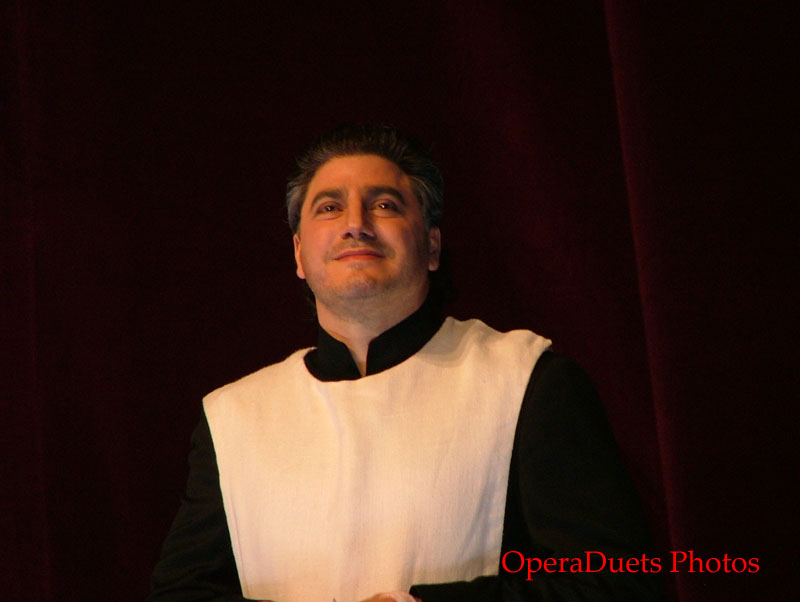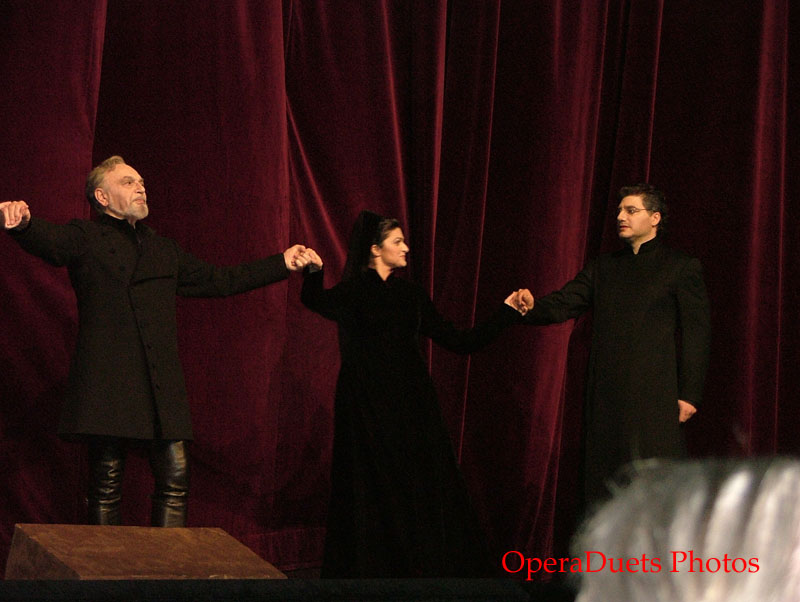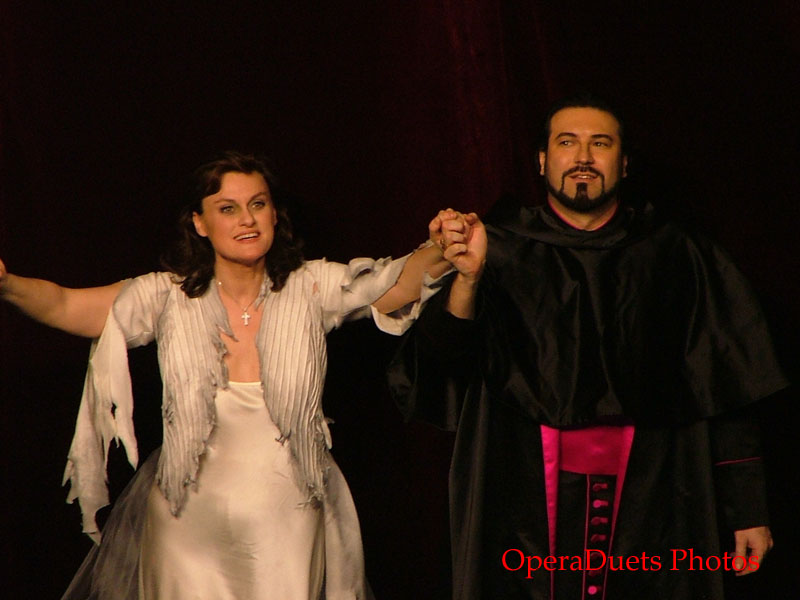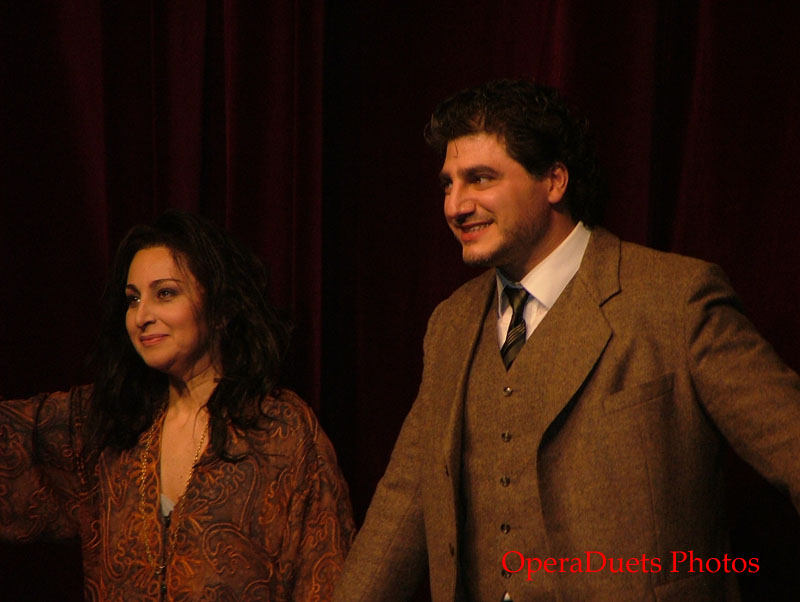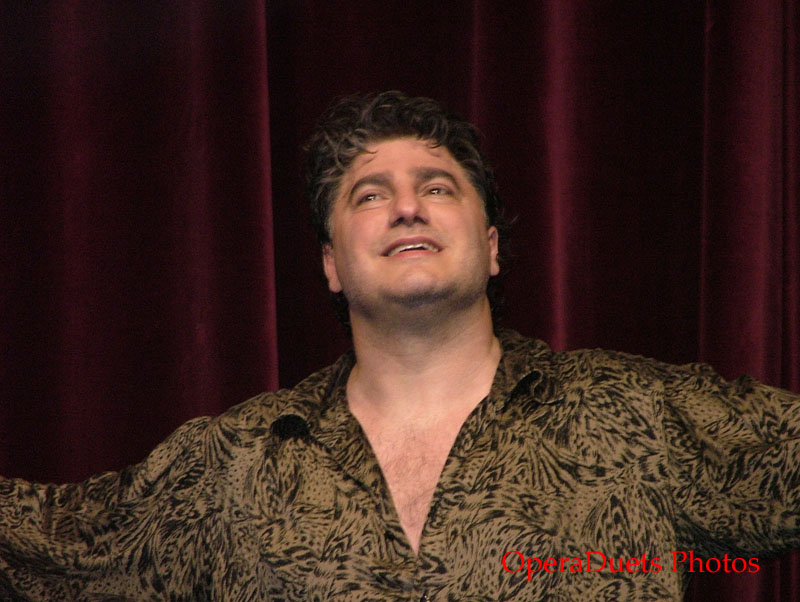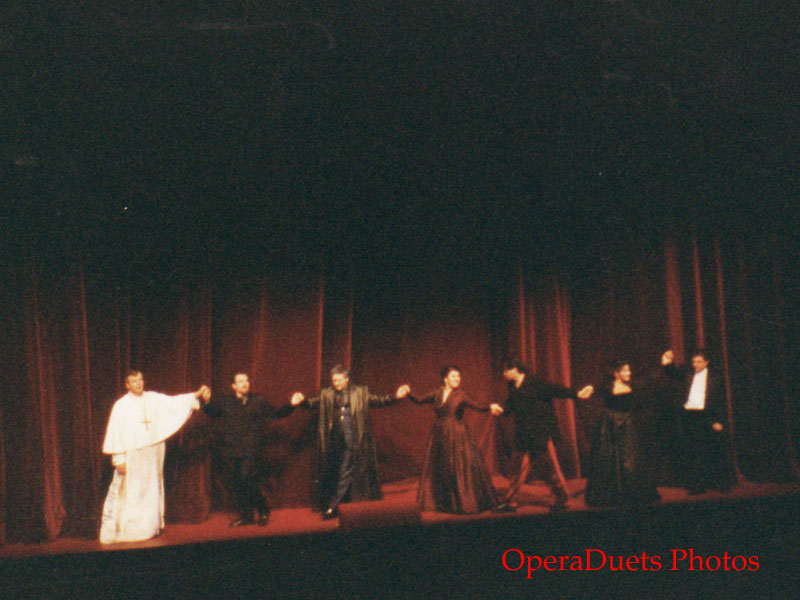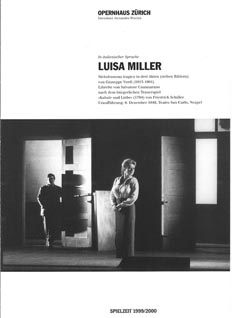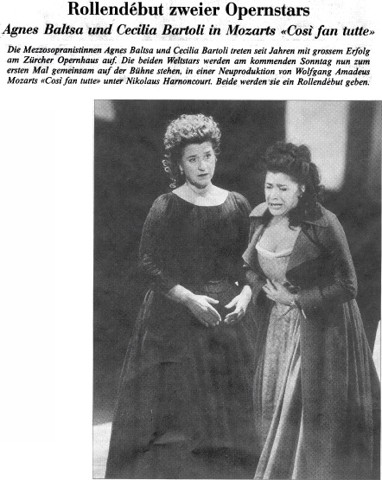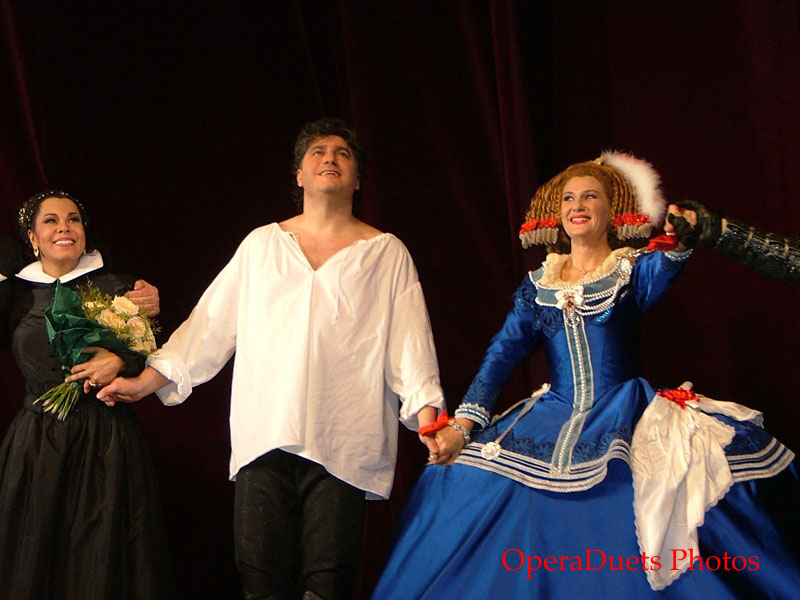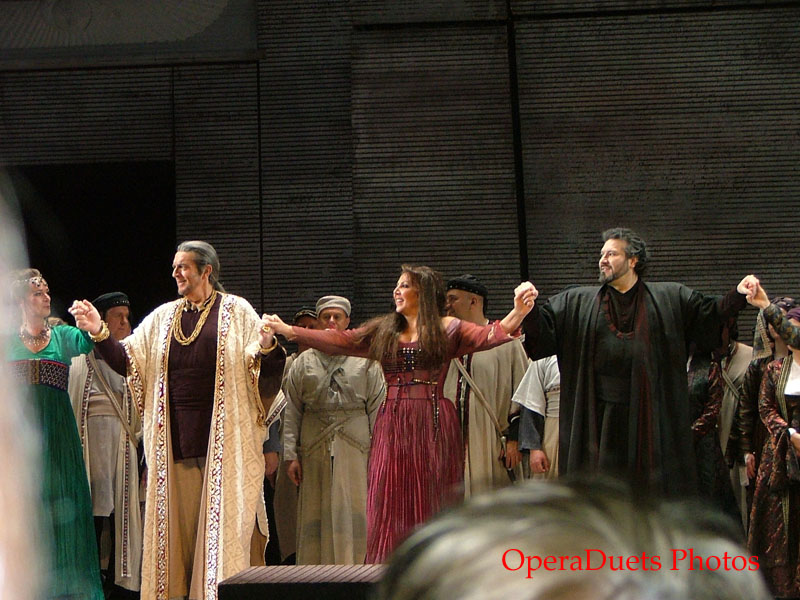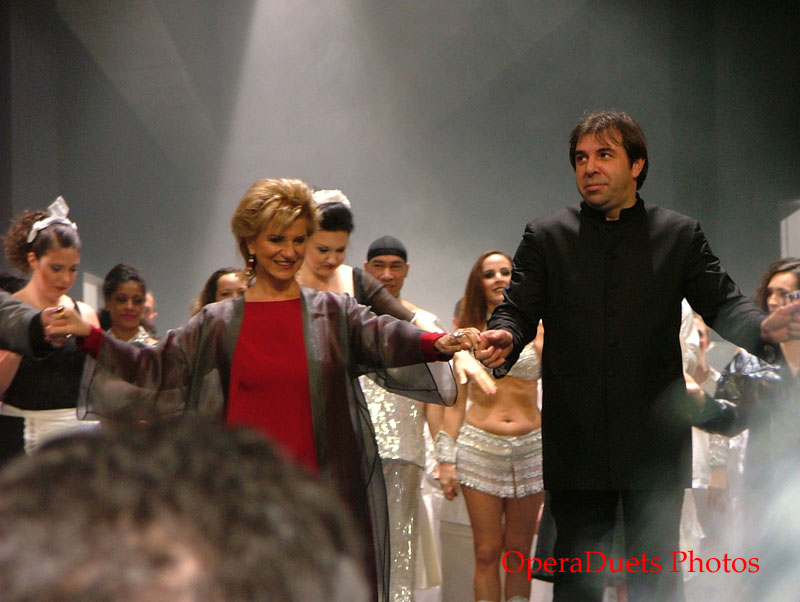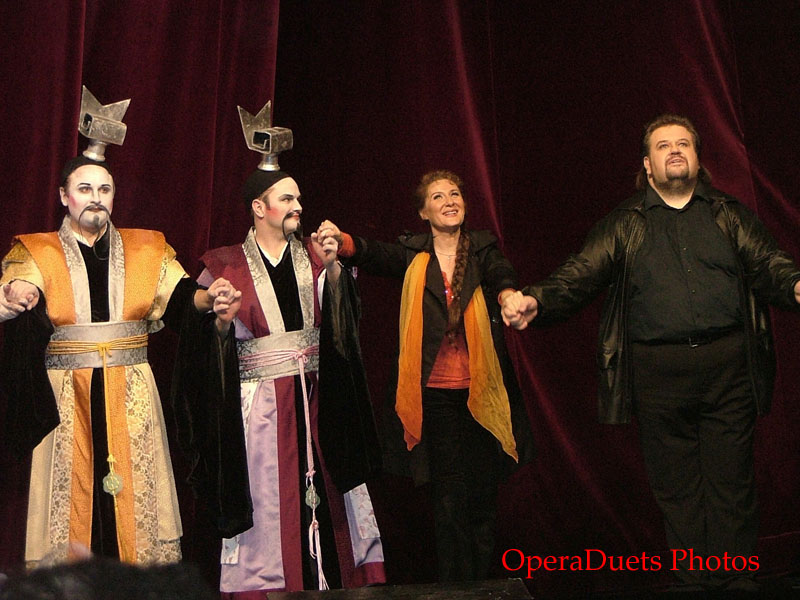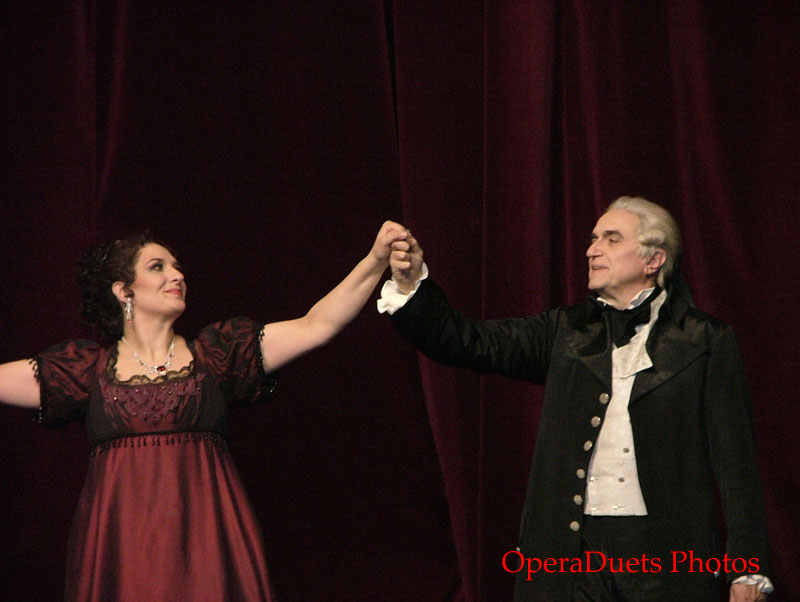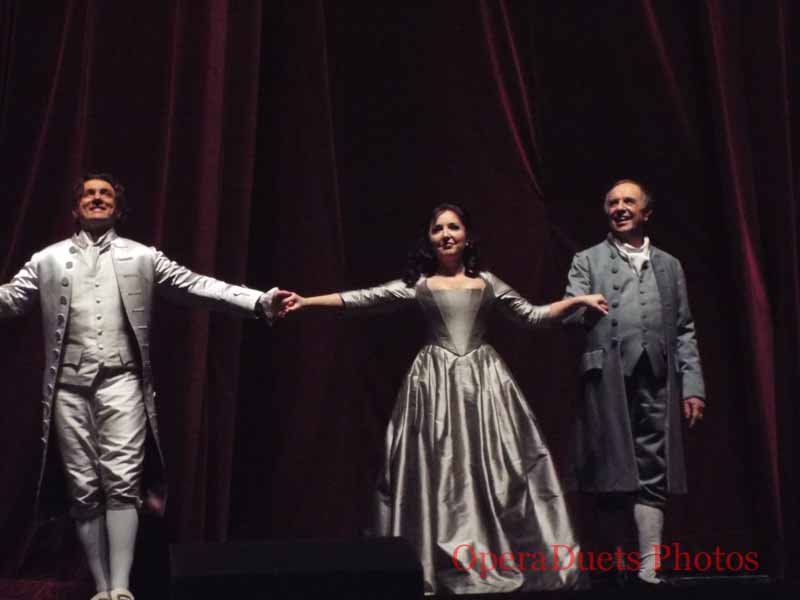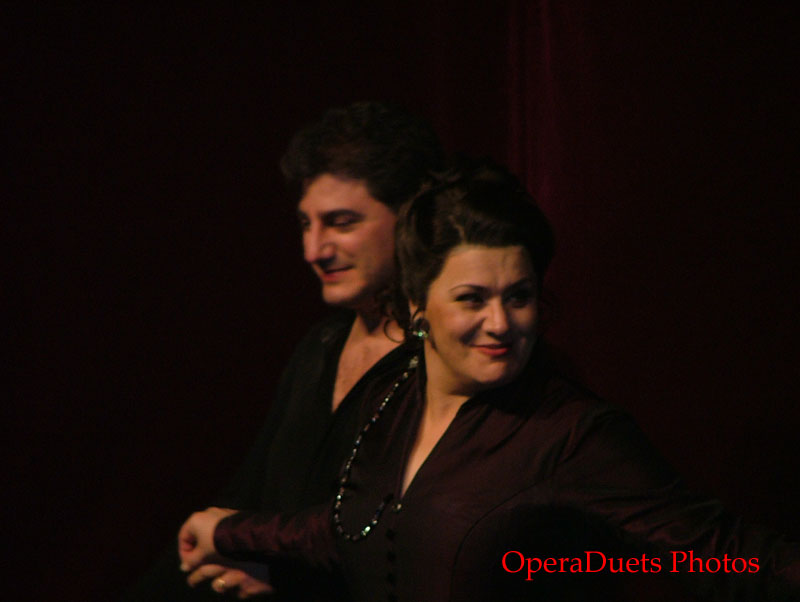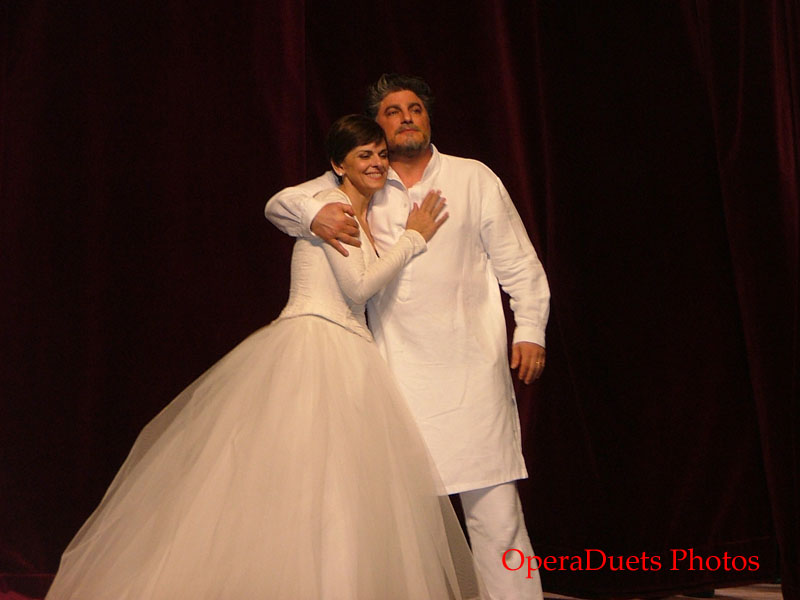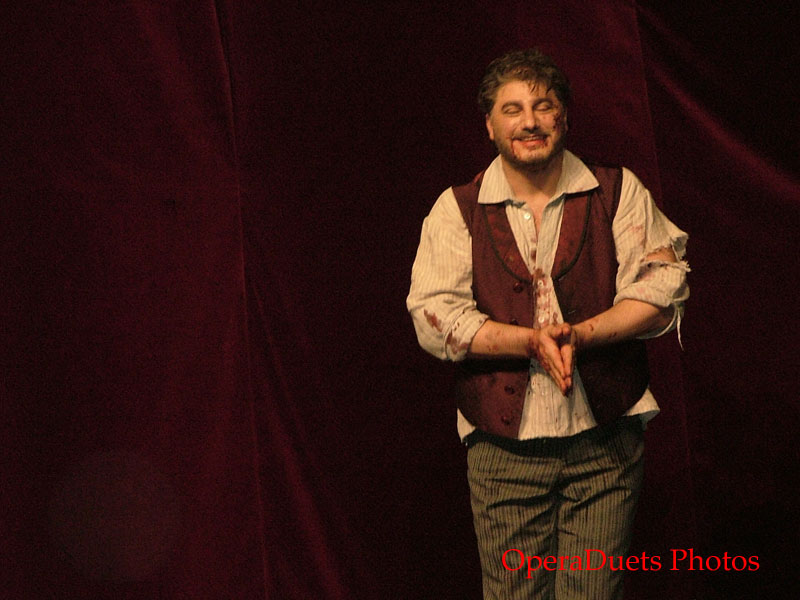2003-03-12 Don Carlo (G. Verdi), Opernhaus Zurich
Filippo II = Carlo Colombara
Don Carlo = José Cura
Rodrigo = Franco Vassallo
Il Grande Inquisitore = Pavel Daniluk
Un Frate = Giuseppe Scorsin
Elisabeth de Valois = Elena Prokina
La Principessa d'Eboli = Luciana D'Intino
Tebaldo = Judith Schmid
La Contessa d'Aremberg = Susanne Merle
Il Conte di Lerma = Leonardo Silva
Voce dal cielo = Sen Guo
Pier Giorgio Morandi, conductor
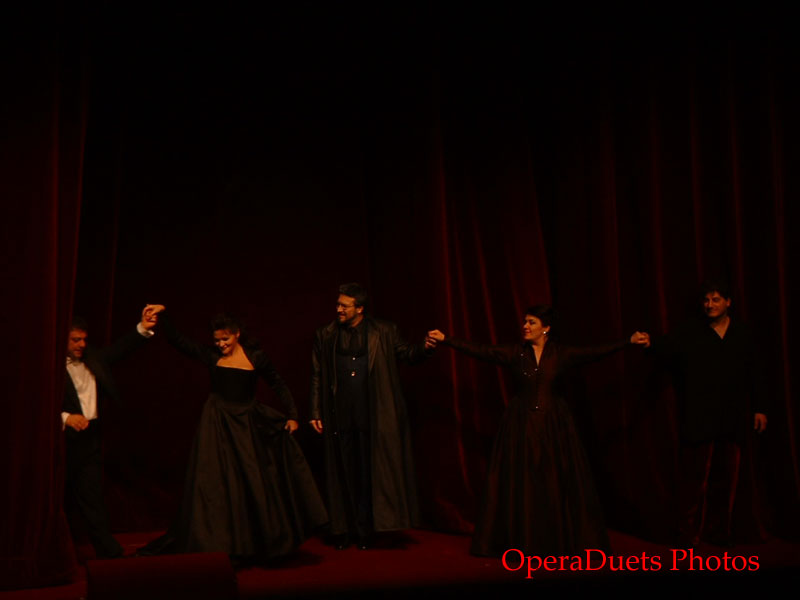
Verdi: Don Carlo
Regie Werner Düggelin
Musikalische Leituug PIER GIORGIO MORANDI
Inszenierung WERNER DÜGGELlN
Spielleitung ULRICH SENN
Bühnenbild RAIMUND BAUER
Kostüme SUE WILLMINGTON
Lichtgestaltung JÜRGEN HOFFMANN
Chor ERNST RAFFELSBERGER
Deputati fiamrninghi/PETER KÁLMÁN, VALERIY MURGA,
Grandi di Spagna SERGEY AKSENOVo, KEVIN ARMSTRONGo, MIRKO JANISKAo,
ERIC KELLERo, SEUNG-HYUK PARKo, FEDERICO SACCHr
0 Mitglied des 105
CHOR DES OPERNHAUSES ZÜRICH
ZUSATZCHOR OPERNHAUS ZÜRICH
STATISTENVEREIN AM OPERNHAUS ZÜRICH
ORCHESTER DER OPER ZÜRICH
Solo-Cello Luciano Pezzani
Musikalische Assistenz
und Einstudierung THOMAS BARTHEL, THOMAS GRABOWSKI
Inspizienz PAUL SUTER
Souffleur LORENZO COLADONATO
Mittwoch, 12. März 2003 FREIER VERKAUF
PAUSE NACH DEM ZWEITEN AKT BEGINN: 19.30 UHR
ENDE: ca. 23.00 UHR
Act 1 Scene 1
This is the Italian, 4 act version. Which starts in San Juste, with the monks singing "Carlo, o sommo Imperatore". The stage is black, and we do not see the monks, they are singing ofstage. Don Carlos is
already onstage, Jose Cura is laying down, making a pathetic figure, "Io l´ho perduta", he is mourning the loss of Elisabeth de Valois, his once-fiancee, who had to marry the King, Filip II, his own father for political reasons. Luckily the voice of Cura was improved after the first minutes here. Don Carlos´ friend, Rodrigo sees Don Carlo, the Infante of Spain in quite a mood. But Rodrigo makes Don Carlos think of the Flemish people in need, Jose Cura and Franco Vassallo sings a wonderful "Dio che nell'alma infondere", even though Cura is sometime of of synch, so the conductor Morandi must take special care and point to Cura, when he is on cue. When Filip II
and Elisabeth de Valois comes in to pray, they and the 6 "bodyguards" walks to fast for a royal prosession I think.
Act 1 Scene 2.
It is in bright blue, with some wonderful scenery, the court ladies is making a big picture of Fontainebleu, for the queen. Tebaldo is walking around like a teenager with an important job. Then Pricess Eboli arrives and soon a happy song of the veil, Muhammed and his queen. Eboli, Luciana d'Intino receives the first applause, she
is fantasic. Coloratura-alto. Then the queen arrives, Elena Prokina is Elisabeth de Valois. And the Rodrigo, Grande de Espana, comes with one secret message from Carlos, and one official from the royal Queen
mother in France. And soon a terzett "Che mai si fa nel suol francese", where Rodrigo efficiently and elegantly stops Eboli from casting the eyes at the Queen, finding something suspicious. And then Don Carlos comes to talk with his "mother" (step-mother, naturally), and Jose Cura starts very softly but is soon angered by Elisabeth de Valois "coldness", Elisabeth speaks of honnour and Carlos wants to talk about love. "Io vengo a domandar" ends with Elisabeth telling about murder his father, and marry his mother. "Maledetta io son",
and Carlos runs out. Then the King, Carlo Colombara, come in and see the queen alone, that is against the etiquette of the Spanish court. ONLY, that when the king arrives, the court woman have arrived a
little too soon... The Lady of Honnour who was supposed to be with the Queen, gets the message from the King, go back to France. So the queen looses her compatriot at the court, "Non pianger, mia compagna". Elena Prokina is a little out of synch and conductor and singer tries to get intact. Then all is leaving, but The king want to talk to Rodrigo". Great Duet ("Restate!")
Act 2 Scene 1
In the Queens Garden, Don Carlo (Jose Cura) is waiting for his beloved, Elisabeth de Valois to come for a secret rendez-vous. But it is naturally Princess Eboli (Luciana d'Intino) who comes. She thinks the Infante loves her, Eboli, but then realise that the sweet words was meant for somebody else, ... the Queen. A fantastic Duet that becomes a wonderful Trio, when Rodrigo (Franco Vassallo) comes in to save Don Carlo when the rage of a jilted woman. My favourite scene in this opera. Rodrigo makes Don Carlo give som letters about the revolt they are planning in Flandern, and some love letters.
Act 2 scene 2 Autodafe-scene.
Grand scene with all people gathered to have a feast, when "enjoying" the death of sinners condamned by the Spanish Inquisition. The King, Carlo Colombara, restates his vow to be the protector the Cathotic faith. "Gloria a Filippo, gloria al ciel'!" Then suddenly Don Carlo comes in with the Flemish deputation to ask of clemency for Flandern and Brabant, something the King and the Monks refused, but the people with Elisabeth and Rodrigo asks for clemency also. Don Carlo loses his patience, and ask of to reign Flandern and Brabante (Sire! egli e tempo ch'io viva), when the King refuses this, Don Carlo threaten his father with a sword. Only Rodrigo asks for the sword from the Infante. The crisis is over. And the celebration of death of the heretics can continue. A voice from Heaven, promises the "heretic" salvation.
Intermession
Act 3 Scene 1
In the chamber of the King Filip II, Carlo Colombara is singing the wonderful aria "Ella giammai m'amo". Elisabeth has never loved the King, and the Infante is rebelling against his father. Filip thinks that his crown makes it possible to read the mind of others, the king has a very suspicious mind. He long for peace, to sleep in Escorial, the royal grave. More misfortunes, the Grand-Inquisitor comes in, and two basses are battling against each-other, why must the crown always bend for the altar. Grand-Inquisitor gives the king permission, to excile or death to the Infante, but he wants the life of Rodrigo of Posa, The king tries to resist... And after this The queen comes asking for justice, someone has robbed her of the box inwhich all her juwellery is in. Filip has it, he opens it a finds the portrait of Don Carlo. He accuses Elisabeth of being an adulteress, she swoons, Rodrigo and Eboli rushes in. Wonderful quartett. It is Eboli who has stolen it, and told Filip about Elisabeth and Carlos. She asks for forgivesness, is almost forgiven but the she has more on her hart, the King has seduced Eboli, this can not be forgiven, Eboli gets the choice of excile or the convent. Then comes the BIG moment, "O don fatale", where Eboli mourns the loss of her queen, never to see her again, a curses her own beauty that have made her so vain. Then she remembers Don Carlo, he is condammed to death, One day I have left, I can save him.
(This is what I call a highlights-only scene)
Act 3 Scene 2
The prison of Don Carlos. Rodrigo comes to visit his friend. He has saved him, the letters have been found in Rodrigos room. "Per me giunto e il di supremo". And then when the bullet come, he tells Carlos that his "mother" knows everything, go to San Juste, she will meet you there, YOU can save Flandern. Rodrigos has just died, when Filip II comes to give his son the sword back. Don Carlos refuses, since The king has killed the best friend, he gave his life for me. The people wants the Infante, the Grand-Inquisitor comes to calm all down, prostrate to your King.
Act 4
San Juste. Elisabeth de Valois, Elena Prokina sing her Great Aria "Tur che la vanita", about Carlo V, Charles V. Then Cura and Prokina have their last duet. "E dessa! - Ma lassù ci vedremo in un mondo migliore". At last Don Carlo is ready to forget Elisabeth and to use all his force to the Flemish cause. But the the King and Grand-Inquisitor appear. They demand both deaths. And then the opera ends with the monk, and they all are afraid since they hear the voice of Carlo V, the grand-father of Don Carlos. In the confussion, Don Carlo and Elisabeth disappair into the monastery San Juste.
First time I know that Elisabeth was saved, too!!
GREAT OPERA
Bravi, tutti!
OD Travel + Photos
